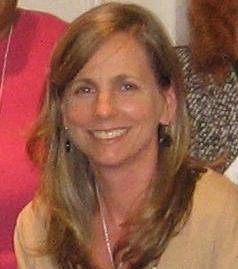 Last year, the Cold Case team reviewed a massive file of a 14-year-old foster child named Charlie. Among the state of Georgia forms, reports, statements and all things bureaucratic was a long-forgotten letter from his kindergarten teacher when the boy was 5.
Last year, the Cold Case team reviewed a massive file of a 14-year-old foster child named Charlie. Among the state of Georgia forms, reports, statements and all things bureaucratic was a long-forgotten letter from his kindergarten teacher when the boy was 5.
In the letter, the teacher pled for intervention for Charlie*. She obviously cared for her student, who came to school without a coat or socks in cold weather, sometimes wearing filthy underwear. The teacher noted that Charlie was frequently hungry at school and also described the emotional abuse she witnessed when visiting him in his roach-infested home.
Georgia’s Division of Family and Children Services (DFCS) had been involved with Charlie’s family since he was very young. Eventually, at age 6, he was taken into state custody because Charlie’s father barely functioned as a parent and Charlie’s mother was mentally ill.
The father had grown up in foster care himself, had an extensive criminal history and abused drugs. At an early age, Charlie was exposed to violence and he, in turn, threatened others. Evidence revealed he was molested both before and while in foster care by older children. Charlie also heard voices and had hallucinations.

Michelle Barclay
At the age of 8, Charlie was sent to a psychiatric residential treatment facility – a hospital for severely mentally-ill children. By the age of 14, Charlie’s opportunities to live with his family or any family looked grim. However, no termination of parental rights (TPR), as required by state and federal law for children in custody long-term, had occurred. The compelling reason for NOT terminating those rights was that in spite of all the difficult times with Charlie and his father, the two still had a bond.
Charlie’s father visited him, reached out to him and cared about him. Thus with DFCS’ and legal support, his father began anew to work his case plan to regain custody of Charlie. He managed to obtain housing and employment, but it was not a consistently upward trajectory; there were many setbacks and obstacles.
Meanwhile, Charlie remained in a mental health institution over six years with minimal to no progress in recovering from his mental illness. Despite being on multiple psychotropic drugs, Charlie continued to be very aggressive and needed to be physically restrained frequently.
If drugs wouldn’t work, what would? Last year, DFCS engaged Youth Village’s wrap-around services for Charlie’s case and with counseling, Charlie’s father began to recognize his part in causing Charlie’s mental health issues and learned new ways to manage and engage his son. Both began to hope for a better future and were able to break dysfunctional and destructive patterns of conduct and speech.
Because of a specialized team and unified vision of more than 20 people, a strong child attorney, and multiple court hearings, Charlie was recently discharged from the hospital where he spent almost half his life. Custody was given back to his father.

Leslie Stewart
At the close of the custody transfer hearing, the entire courtroom stood and applauded this remarkable achievement. Charlie and his father are still receiving ample support from the state: therapists come to the home and frequently monitor their family life to ensure that it remains on a positive course.
No longer on track for life-time institutionalization, Charlie is being slowly weaned from his drug regimen. He now has a chance to live in the community, to be a productive person in society, and to be connected to people who love him, and at a much lower daily cost!
Wherever Charlie’s kindergarten teacher is now, she should know that her concern and intervention ultimately had a happy ending, that Georgia’s huge team of experts provided enough support to Charlie and his father to keep them together and safe. Charlie’s story is one of redemption, of patience, and of never giving up hope on permanency.
*Charlie is not his real name, but his story is real. This teen was part of a statewide review called the Cold Case Project. The Cold Case Project is being conducted in full partnership and transparency with the Division of Family and Children Services. The project is made possible by the Casey Family Program funds.

See above.
Reading this excellent Cold Case Story helps me to remember and appreciate why we do what we do. I am a therapist for the Forsyth County Juvenile Court. Our Juvenile Court Judge, Judge Russell Jackson, believes in rehabilitation, not only for the youth we serve, but also for their families. Your article is a tribute to those families, who, in time of crisis, need that kind of “village”, in order to be the kind of families they can be.
Such an inspiring success story. It does my heart good to be reminded that there are so many tireless angels fighting for our children.
Leslie, your involvement with this wonderful organization just serves as further confirmation of what I quickly realized when I met you in law school, YOU ARE A SAINT.
Thanks for continuing to fight for our children.
Sincerely,
Lyonnette M. Davis